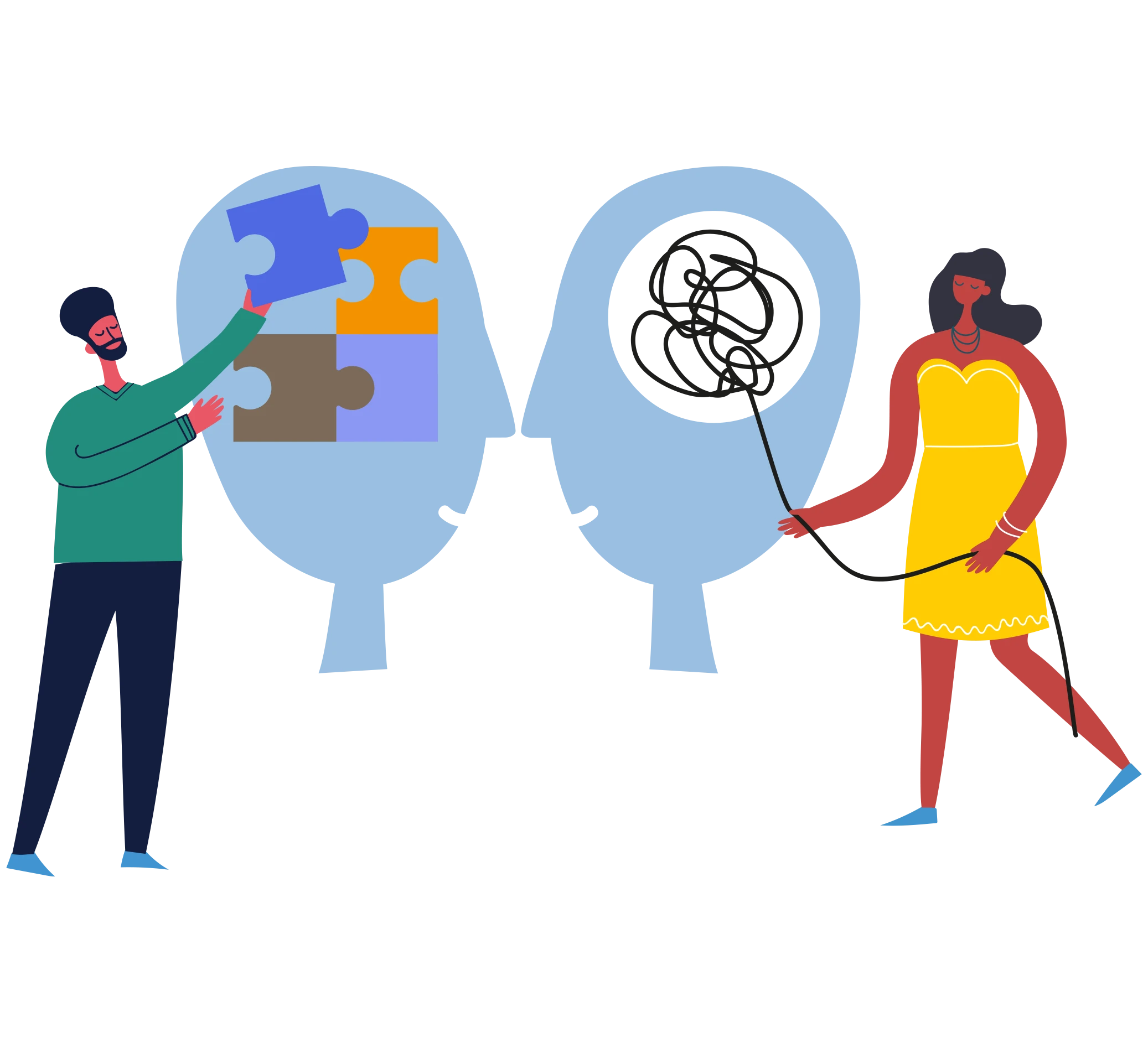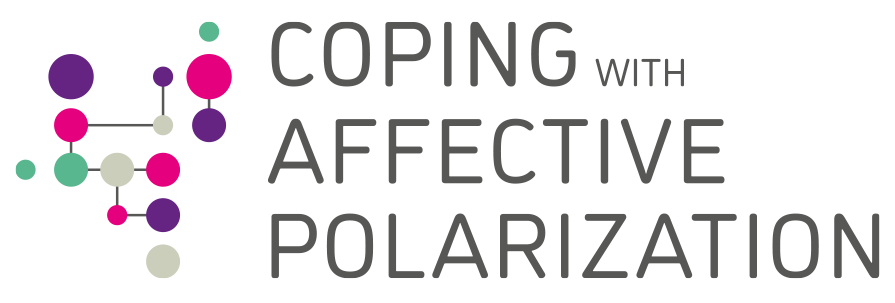Principle Investigators:
Prof. Dr. Malek Bajbouj, Dr. Ronja Demel, Dr. David Schieferdecker, Prof. Dr. Hanna Schwander, Prof. Dr. Jule Specht
Associate researchers:
Dr. Nadine Knab, Dr. Larissa Knöchelmann, Dr. Lucas Köhler
Individuals differ in how receptive they are to affective polarization and in the kind and intensity of their responses to it. For example, some individuals show a stronger tendency than others to sort people into in-groups and out-groups, thereby feeling a stronger connection to like-minded people, while harboring negative emotions towards those with differing views. There are also individual differences in behaviors related to affective polarization, ranging from the ability to cooperate and show tolerance to engaging in hate speech and violent behavior. Moreover, individuals vary in how they cope with affective polarization and its negative consequences. These attitudinal and behavioral tendencies are influenced by a range of individual factors, including personality traits, emotional regulation skills, and mental health.
Research Questions and Objectives
By integrating perspectives from Psychology, Psychiatry, and the Social Sciences, this Research Stream aims to generate a comprehensive understanding of such psychological foundations of affective polarization. Specifically, we aim to
uncover systematic individual differences in the degree of affective polarization,
analyze its underlying causes, behavioral consequences, and
identify coping strategies individuals apply to deal with it in constructive ways.
To this end, we focus on three key research areas Personality Characteristics (Work Package 1), Socio-Emotional Competencies (Work Package 2), and Mental Health (Work Package 3)
Taken together, the insights gained from the three work packages will contribute to a more nuanced understanding of affective polarization. By drawing on methods from clinical psychology, our findings will help design evidence-based intervention strategies and tools that empower individuals to navigate affective polarization in a constructive way and thus mitigate its detrimental effects. These strategies will aim to strengthen key competencies such as empathy, tolerance, and the ability to engage in constructive dialogue, fostering more resilient and cohesive societies in the face of affective polarization.
This work package explores how personality traits shape the experience and consequences of affective polarization. Grounded in the Big Five model – openness, conscientiousness, extraversion, agreeableness, and emotional stability – it examines how enduring individual differences influence political attitudes, emotional responses, and coping behaviors. Theoretically, we can assume that personality moderates how ideological differences are emotionally internalized affecting social behavior-transforming disagreement into hostility or, alternatively, fostering resilience. In addition, this work package considers how more nuanced personality characteristics, such as intellectual humility – or the recognition of one’s intellectual limitations – can help mitigate affective polarization. We further investigate how traits linked to resilience can be influenced through interventions, offering new approaches to prevent or reduce affective polarization. Overall, the work package contributes to a deeper understanding of how stable personality dispositions shape ideological divisions, affective responses, and behavioral consequences in polarized societies – highlighting both vulnerabilities and resources within individuals that influence democratic participation and social cohesion.
This work package investigates the role of socio-emotional competencies – especially empathy – in affective polarization. Empathy involves both emotional concern and cognitive perspective-taking and is vital for fostering mutual understanding and cooperation. However, research shows that empathy is often selectively directed toward in-group members, potentially reinforcing polarization when out-groups are excluded from empathic consideration. Theoretically, this raises important questions: Can empathy bridge political divides, or does it deepen them by solidifying in-group loyalty? The work package explores how individuals define in- and out-groups and how these definitions affect empathic responses, social behavior, and political engagement. It also examines whether empathy can drive tolerance and understanding toward political opponents or if it is confined within ideological boundaries. A key goal is to identify when and how empathy reduces polarization – or unintentionally exacerbates it. Additionally, the work package considers empathy as a target for intervention, asking whether it can be strengthened to foster broader social acceptance. Ultimately, this work contributes to understanding how emotional and social skills influence political attitudes and behaviors, and how empathy might be leveraged to reduce affective polarization and improve democratic coexistence.
In this work package, we investigate how mental health and coping strategies shape individual responses to affective polarization. Among others, mental health involves emotional well-being, the ability to manage stress, and maintain social connections. The extent to which an individual experiences mental (ill-)health plays a crucial role in how they react to and cope with societal conflicts and challenges associated with affective polarization. Based on our research findings and by applying established clinical psychological knowledge to the context of affective polarization, this work package contributes to the development of evidence-based interventions that strengthen resilience pathways and thereby support individuals in maintaining mental health and constructively navigating affectively polarized environments.


